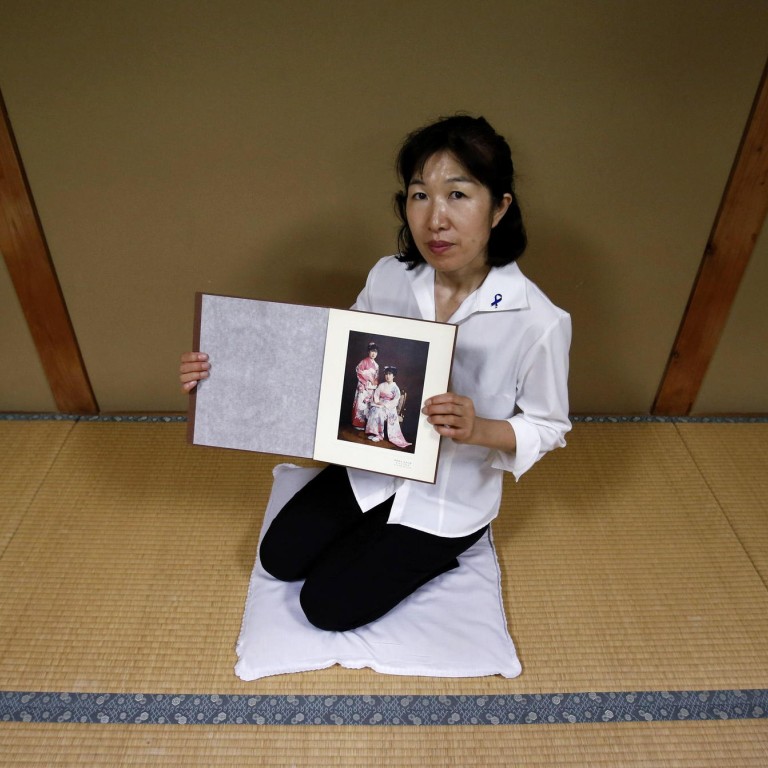
Japanese woman clings to hope lost sister is alive in North Korea
Miho Yamamoto vanished in 1984, and her sister prays Pyongyang will confirm her belief she was abducted from Japan and still lives
Misa Morimoto spoke to no-one for 18 years about her identical twin sister who vanished when they were 20, not even to her own children. On the rare occasions when asked, she lied and said her sister was studying overseas.
But slowly the pain of uncertainty about her sister's fate was replaced by suspicion of the unthinkable - that her twin, Miho, an energetic girl who liked striking silly poses for the camera, was abducted by North Korea.
"It was the late 90s when news drifted out that people from Japan had perhaps been taken to North Korea. I'd watch this on TV with my parents and wonder if there was a connection," said Morimoto, now 50.
We’re twins and there’s a special connection. If she was dead, I would know
"It turned out they were thinking the same thing, but we were all too afraid to say it. We sat there in silence, thinking maybe she was in North Korea. The idea was incredible."
In 2002, North Korea admitted kidnapping 13 Japanese in the 1970s and 1980s to train spies, and five of them returned to Japan. Tokyo suspects hundreds more may have been taken.
A support group for "special missing persons" says 77 are "strongly suspected" to have been abducted, including Miho Yamamoto. (Yamamoto is the twins' maiden name.)
Prime Minister Shinzo Abe has made solving the abduction issue a priority. And high-level talks have led the North to pledge to reopen investigations into the fate of all missing Japanese in return for Tokyo easing sanctions imposed over Pyongyang's nuclear and missile programmes.
North Korea has backtracked on previous promises. But Morimoto hopes that she may now learn about the sister so like her that the pair could swap classrooms and fool their teachers.
"Of course, this is just a feeling, but we're twins and there's a special connection. If she was dead, I would know right away," Morimoto said, dabbing at tears.
On June 4, 1984, Miho, who had dropped out of nursing school to try for a university place, left home in Kofu to study at the library. That evening, the restaurant where she worked part time called to say she had not shown up.
Her motorbike was found the next day at the train station. Police called three days later to say her handbag had been found on an isolated beach on the Sea of Japan 360km from home - not far from where two known abductees were taken.
Years of fruitless searching followed. The family feared Miho might have run away from home, upset by the death of her elder brother in a road accident. They were notified when bodies were found, but none was a match.
In 2002, Morimoto met other families who believed their loved ones might be in North Korea. She was struck by similarities - the remote beach, silent phone calls to the family home cut off shortly after people answered. On some of these, Miho's family heard muffled sobs.
Morimoto also met a North Korean defector who saw her and immediately said: "You're taller than Miho, aren't you? But her shoulders are broader, and she's good at volleyball."
Families like Miho's suffer special agonies, said Kazuhiro Araki, who heads a support group for families of the missing.
"We tell the families there's a chance they were abducted and we'll look into it, but please don't think that abduction is the only answer," he said.
"At least the families of the abductees know where their loved ones are, and it becomes a matter of getting them back."
Morimoto, awaiting an interim report on Pyongyang's investigation, said she feels it is taking the issue seriously.
"But anything's possible," she said. "The worst would be if they say they don't know anything about her. Then I will just go on living in a long darkness."

